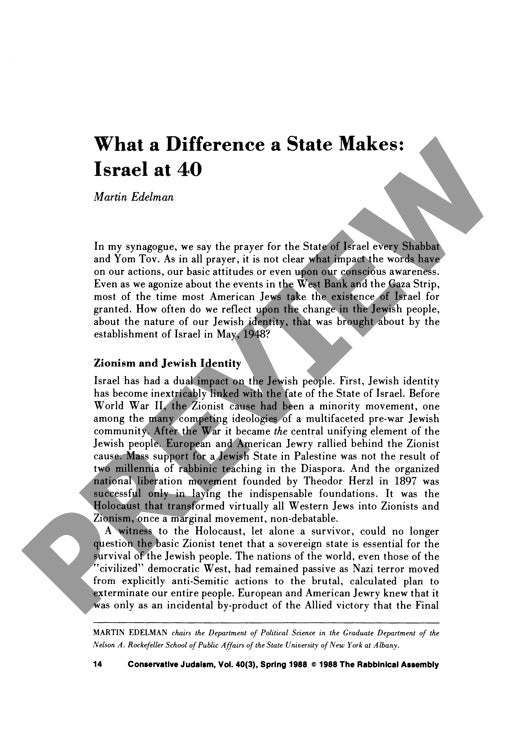What a Difference a State Makes Israel A
Couldn't load pickup availability
Israel's establishment in 1948 revolutionized Jewish identity and self-perception, fundamentally altering how Jews worldwide understood their place in modern society. Through historical analysis and contemporary observation, Edelman demonstrates how the Holocaust catalyzed Zionism's transformation from a minority movement into the central unifying force of world Jewry. As Israel emerged as a sovereign state, Jews globally gained the confidence to act from their own values and convictions rather than merely adapting to gentile societies' expectations. This transformation reached its apex during the 1967 Six Day War, which crystallized Jewish solidarity and self-assurance. Yet this strong identification with Israel has created a complex dilemma for American Jews regarding the Palestinian uprising in the West Bank and Gaza Strip, where support for Israel conflicts with opposition to occupation policies. The analysis reveals a growing divide between American and Israeli Jews on territorial issues, with Israeli positions driven by nationalist, religious, and demographic concerns, while American Jews emphasize humanitarian considerations. While Israel remains the cornerstone of contemporary Jewish identity, this attachment now demands more active engagement with Middle Eastern affairs, highlighting the profound and sometimes challenging consequences of achieving Jewish statehood.

More Information
-
Physical Description
-
Publication Information
Published 1988
ISBN
-
Publication Credits
Martin Edelman

